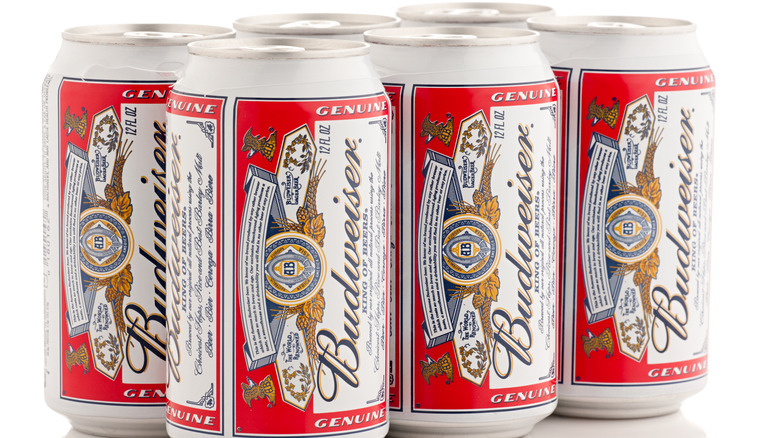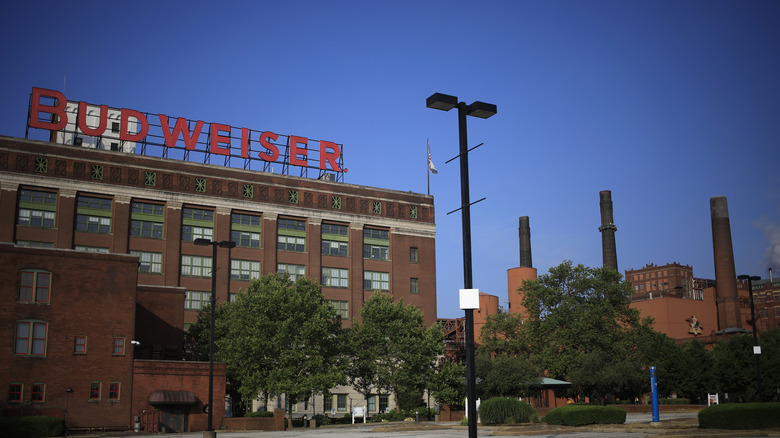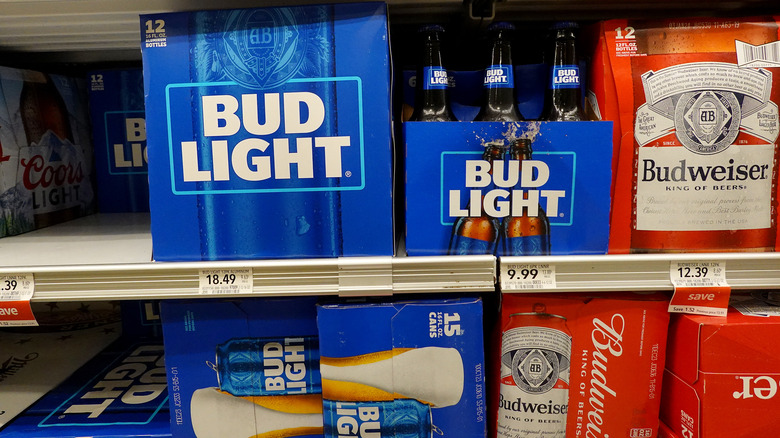How Many Beer Brands Does Anheuser-Busch Actually Own?
Have you ever asked yourself how many clouds are in the sky? How many drops of rain are in the ocean? Just how many beers does Anheuser-Busch own? The answer to that last question is only slightly more quantifiable than the first two. In a word — lots. Anheuser-Busch owns so many brands that a specific number seems impossible to source. According to the website of the overlords of the beer empire, AB InBev, it owns over 500 brands of beer.
These brands range from the obvious flagship Budweiser to Corona and Stella Artois. Anheuser-Busch InBev even owns several craft beers like Devil's Backbone and Goose Island. However, the availability of many AB InBev beers varies depending on region. There are strictly American beers, but there are also beers available in literally every continent owned by this mega-corporation. This number only appears to be growing, following mergers made by InBev after its 2008 Anheuser-Busch takeover.
Anheuser-Busch's beer empire
Founded in 1860, the Anheuser-Busch company became an industry leader by implementing the modern preservation technique of pasteurization, distributing its product via refrigerated transportation, and inventing both Budweiser and Michelob by 1880. Anheuser-Busch saw massive growth during the presidency of Anheuser's grandson, August Anheuser-Busch Jr., between 1946 and 1975. Over the following 33 years, the beer giant acquired a few notable brands, including Becks. However, it wasn't until the InBev merger of 2008 that Anheuser-Busch seemed to really start gobbling up beer companies globally.
Now known by the unglamorous moniker AB InBev, the company owns over 500 brands of beer in different countries in Europe, Asia, Africa, and the Americas, with brands that include Stella Artois, Löwenbräu, Jingling, Rolling Rock, and Busch. The AB InBev 2022 annual shareholder report claimed $57.8 billion in revenue derived from 175 major breweries.
Mergers have created infinite growth
In 2008, Anheuser-Busch was a multi-billion dollar company still owned and operated by the Busch family. However, due to the perceived lack of leadership from August IV, a new company called InBev saw an opportunity. In a move initially viewed as a hostile takeover, InBev bought Anheuser-Busch for around $52 billion, and the Busch family was ultimately pushed out of the picture — although their American breweries stayed open. Anheuser-Busch hasn't been an American brand in almost 20 years, and InBev (a conglomerate based in Belgium) has since acquired hundreds of beer brands. (It also completed a merger with SABMiller for $106 billion in 2016.)
The number of brands currently residing under the corporate aegis of Anheuser-Busch accounts for 42% of the beer market in the United States. Molson (another SABMiller partner) is the second-ranked market leader at 24%. Suffice it to say that when it comes to consumerism in the beer market, choice is mostly an illusion. Unless you're drinking home brew or a craft beer from across town, the odds are that Anheuser-Busch owns your next cold one.


